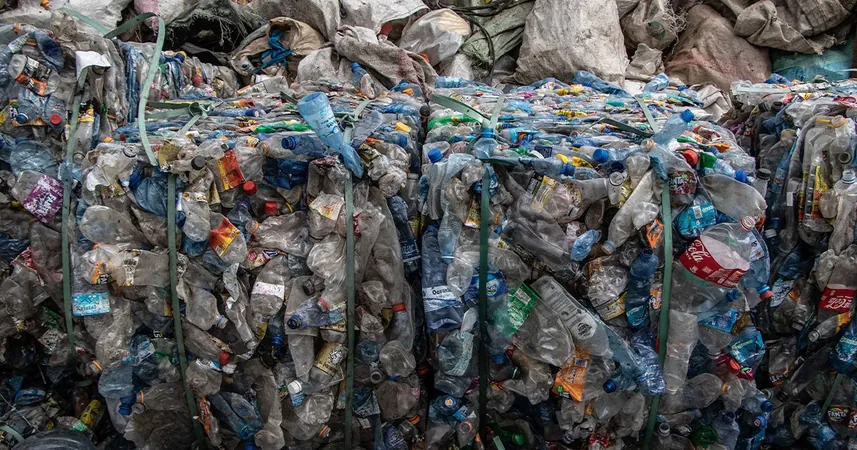
Revolutionary Bacteria Could Be Key to Combating Plastic Pollution!
2024-10-06
Bacteria That Eats Plastic: A Game Changer?
Researchers have long been fascinated by the plastic-decomposing capabilities of a specific bacterium known as *Comamonas testosteroni*. However, this study marks the first comprehensive documentation of the mechanisms behind its plastic-digesting prowess, providing new hope in our fight against plastic pollution. "The machinery in environmental microbes is still a largely untapped potential for uncovering sustainable solutions we can exploit," said Ludmilla Aristilde, senior author of the study and an associate professor of civil and environmental engineering at Northwestern University.
How Does It Work?
To explore this bacterium’s plastic-eating ability, researchers isolated samples and cultivated them on PET plastic shards. They employed cutting-edge microscopic imaging technology to observe the interactions between the microbe, the plastic, and the surrounding water.
The key to this process lies in a specific enzyme that facilitates the breakdown of plastic. To confirm its role, scientists utilized gene-editing techniques to prevent the bacterium from secreting the enzyme. The results were telling—without the enzyme, the bacterium’s ability to degrade plastic was significantly hindered. The process involves the bacterium mechanically 'chewing' the plastic into tiny particles and then enzymatically breaking those down into monomer building blocks, which can be absorbed as a source of carbon.
"It is astonishing that this bacterium can perform the entire degradation process, and we have pinpointed a crucial enzyme responsible for dismantling plastic," Aristilde noted. "Optimizing and harnessing this capability could be transformative in addressing plastic pollution."
Plastic Pollution: A Global Crisis
PET plastics, commonly found in water bottles, constitute 12% of global solid waste and contribute significantly to microplastic pollution in our oceans—representing up to 50% of microplastics found in wastewater. This is particularly concerning, as these microplastics can enter the food chain and pose health risks to both marine life and humans.
Interestingly, *C. testosteroni* flourishes in environments like wastewater, suggesting the possibility of utilizing this bacterium to treat sewage before it is released into oceanic waters. However, experts warn that further research is needed to fully understand the complexities of this bacteria and others that might offer similar benefits.
"There's a multitude of plastic types, and consequently, various approaches are necessary to mitigate the environmental damage associated with plastic pollution," advised Timothy Hollein, a biology professor at Loyola University Chicago. "A comprehensive approach that explores multiple solutions is essential."
The Future of Plastic Cleanup is Here?
As research continues, this discovery opens exciting possibilities for innovative cleanup strategies. Scientists could potentially engineer bacteria not only to degrade PET but also to tackle other hard-to-break-down plastics, offering a glimmer of hope in an otherwise daunting environmental crisis.
In a world increasingly plagued by plastic, could bacteria be our ally in restoring ecological balance? Stay tuned as this story develops!



 Brasil (PT)
Brasil (PT)
 Canada (EN)
Canada (EN)
 Chile (ES)
Chile (ES)
 España (ES)
España (ES)
 France (FR)
France (FR)
 Hong Kong (EN)
Hong Kong (EN)
 Italia (IT)
Italia (IT)
 日本 (JA)
日本 (JA)
 Magyarország (HU)
Magyarország (HU)
 Norge (NO)
Norge (NO)
 Polska (PL)
Polska (PL)
 Schweiz (DE)
Schweiz (DE)
 Singapore (EN)
Singapore (EN)
 Sverige (SV)
Sverige (SV)
 Suomi (FI)
Suomi (FI)
 Türkiye (TR)
Türkiye (TR)